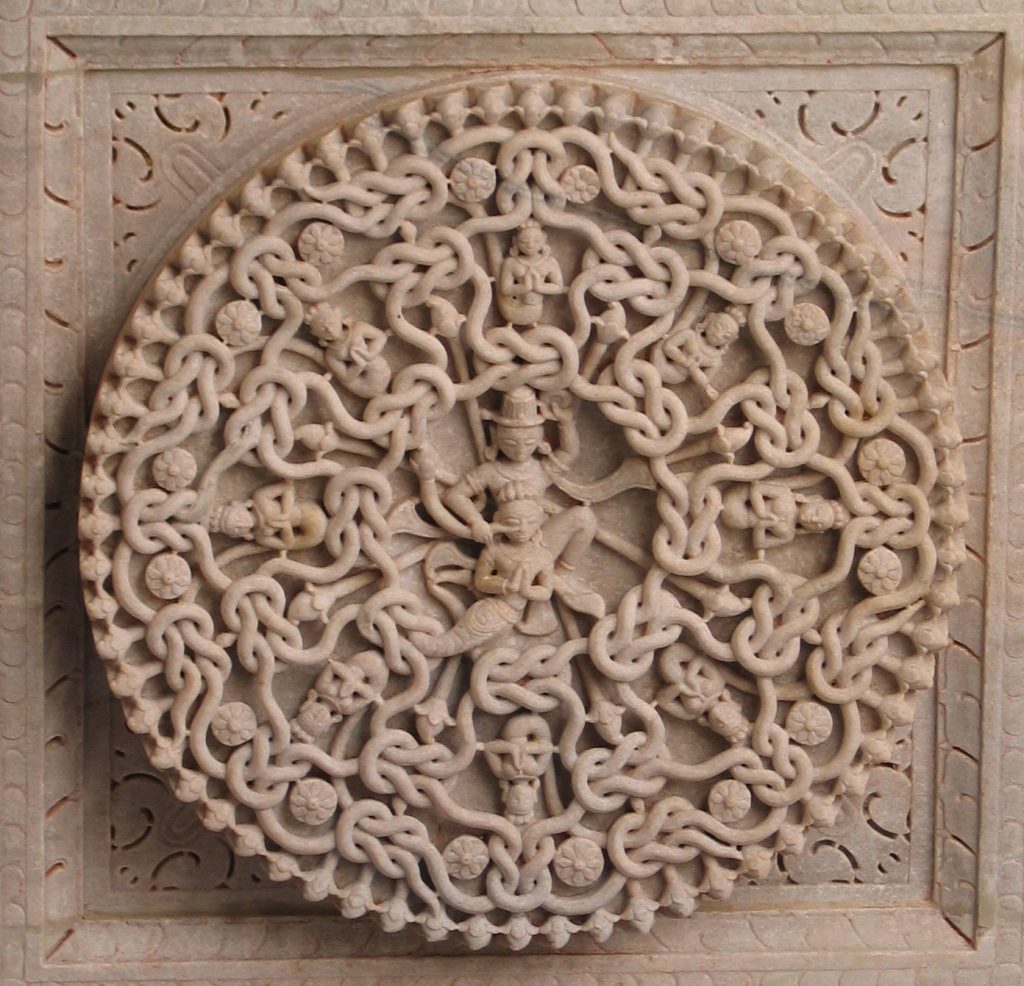The karma (action, deeds, done) is the spiritual principle of cause and effect and more specifically the cause and effect relationship, the the law of the interaction.
The Golden Rule of Morals or Ethical Considerations
Do unto others as you would have done unto you. This biblical statement is considered to be the Golden Rule of human behaviour. It appears almost verbatim in the scriptures of most other religions, and as commonly interpreted it seems to be a reasonable code of conduct for civilized humans. If we don’t like being hurt, it tells us, don’t hurt somebody else. But wait a minute. What if we like to be hurt’? Upon closer examination, the Golden Rule quite clearly advises us to be more considerate of our own preferences than those of others; it does not enjoin us to treat others as they would like to be treated, but as we ourselves would like to be treated if we were them. What is the true significance of this cryptic advice’?
According to Yoga, the Golden Rule is not based upon moral or ethical considerations; its advice is purely practical. The reason why we should only do to others what we would like to have done to us is that everything we do will someday be returned to us in kind. The Golden Rule may be looked upon as an interpolation of a universal law: As you do to others, you shall have done unto you. This, poetically stated, is what Yoga calls the law of karma.
Western religion holds that the fruits of our actions are enjoyed or suffered in some afterlife situation, but the law of karma maintains that what we do in life returns to us in life.
What Goes Around Comes Around
Do not forget, What Goes Around Comes Around.
Say you are a very highly evolved soul, living a lifetime as an extremely pure and holy human being. I, on the other hand, am a relatively primitive soul, having spent a lot of time in the other realms, but not much time on earth, and I am now living a lifetime of evil—hardly better than a savage beast. I, the worthless wretch, ruthlessly murder you, the saint. Now, would it be perfect justice for me to pay for my crime by being myself murdered in this lifetime? Is the life of an evil wretch exactly equal in value to that of a saint? Of course it isn’t, no more than an employee with twenty years’ experience is equal in value to one with just a few days on the job. In order for perfect justice to be achieved in such a situation, the law of karma demands that the primitive soul defer the payment of this karmic debt until that soul has become evolved to the exact same level of the one whose vehicle it once destroyed. When I, who was once a worthless wretch, have become myself a saint, then the saintly life I once took can be repaid; some primitive soul will come and murder me, and even though perfect justice will prevail, those around me at the time, not able to see all the way back to the root of the debt which has just come due, will look upon my death as a senseless tragedy.
All the unexplainable mysteries which flaw the dogmas of Western religion become solved when looked at from the viewpoint of karma and reincarnation. Even people who do not believe in these doctrines or in the existence of heaven and hell still seem to intuitively understand that somehow or other everything we do comes back to us; thus they try to lead a life of goodness, despite the apparent fact that being bad is often easier and more rewarding. Viewed with the law of karma in mind. Acts of heroism, charity, compassion, tolerance or humility yield at least as much concrete benefit to the one who performs them as for those at whom such actions are directed.
Yesterday’s Actions Become Today’s Destiny
Each of us is completely responsible for the situation in which we find ourself at every moment. Yesterday’s actions become today’s destiny, and today’s actions become our future life. This is the law of karma.
For example, say we desire something—fame, perhaps— more than anything in the world, but our past karma is such that our present desire for fame cannot bear fruit for us right away. When we want something very badly and can’t have it, we experience much pain and frustration, and this in turn leads us to wish we didn’t want the thing, since the wanting causes so much suffering. Thus, we are now projecting conflicting desires: On the one hand, we desire fame, and on the other we wish not to want fame. Eventually, perhaps in some future lifetime, both desires pay off for us; we become famous and at the same time we do not want to be famous! More misery follows, leading to more conflicting desires, which in turn result in more chaotic future karma.
Know How Karma Works!
The knowledge of how karma works can help us to avoid building such painful traps into our future lives. Only who is completely free of the binding chain of karma can truly be called a liberated being.
Even the most powerful worldly life is but a shadow of the ecstasy of becoming immersed in Sat-Chit-Ananda (the unmodified Existence, Consciousness and Bliss of Shiva), so even good desires are a trap; they keep us tied to the wheel of reincarnation until they all bear fruit. The only none trapping desire is the desire for Self- realization, because when it bears fruit the chain becomes broken.
Meanwhile, Yoga advises us to learn to use the law of karma to our best advantage. If we try to project only positive, non- conflicting desires and emotions, someday only pleasant things will come to us. In this universe of perfect order, not even the smallest effort goes to waste. If we meditate just once, then lose the discipline for ten years or even ten lifetimes, the next time we meditate will be our second attempt, and the benefits will compound accordingly. Child prodigies who exhibit remarkable talent early in life have earned their gifts through extensive effort in previous lifetimes. People who display occult powers in a lifetime devoid of psychic training are reaping the fruits of spiritual discipline during other incarnations.
Facebook Comments



